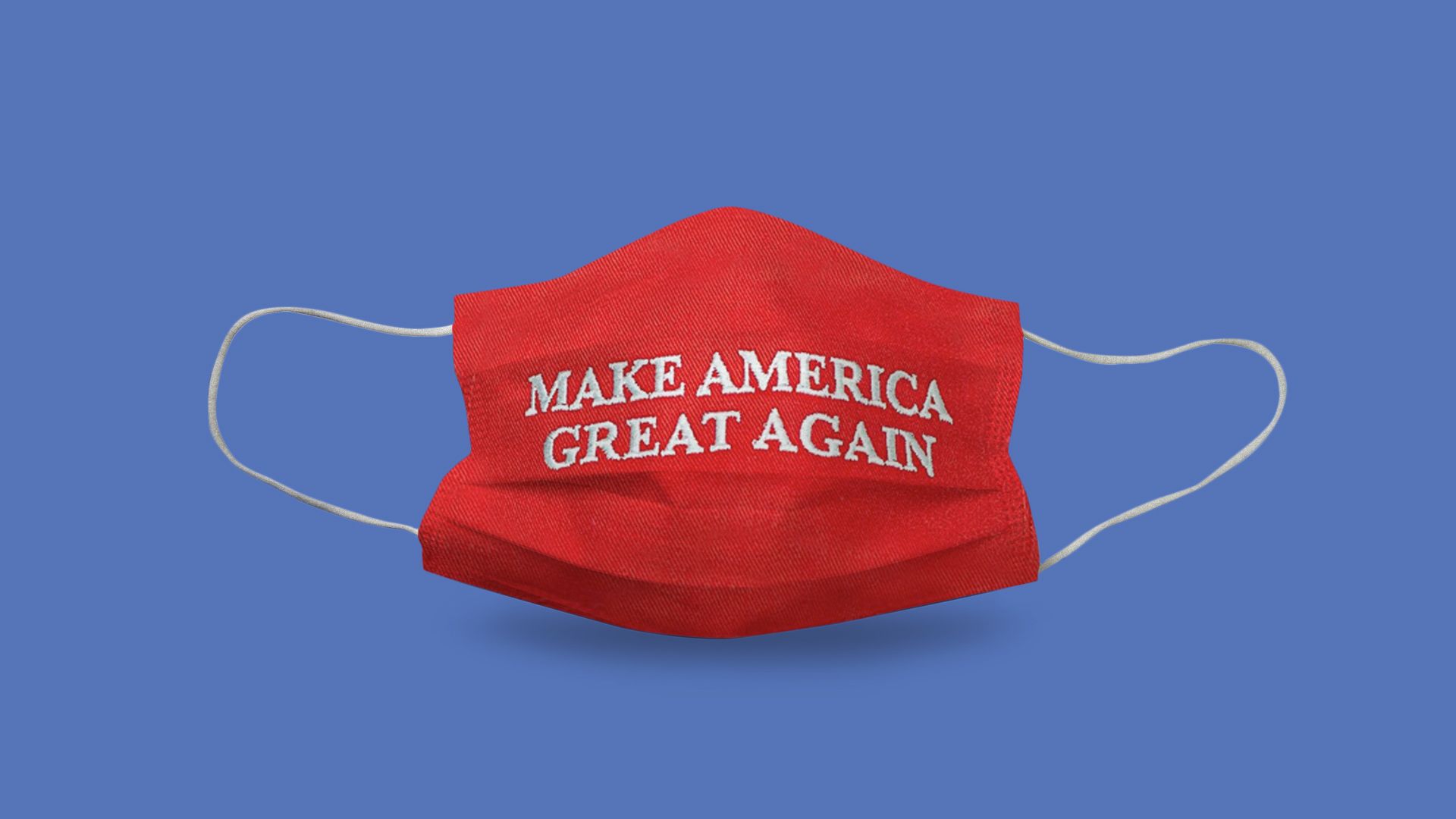Trump's post-virus, pre-election boom
Add Axios as your preferred source to
see more of our stories on Google.

Illustration: Aïda Amer/Axios
The Wuhan coronavirus outbreak is already scuttling supply chains and wreaking havoc on companies around the world that do business in China, but if analysts' projections are correct, the rebound from the virus could help propel the U.S. economy to new heights right around the time of the 2020 presidential election.
Why it matters: With President Trump touting the stock market's performance and jobs growth as key accomplishments, that bounceback could play a major role in the election's outcome.
What's happening: S&P Global expects the outbreak to "stabilize globally in April 2020, with virtually no new transmissions in May."
- And most economists predict the world will get back to business as usual by the summer — and make up for lost time with accelerated economic growth in the second half of the year.
What we're hearing: "We’re likely to return not just to normal but above normal because of the U.S.-China trade deal," Kristina Hooper, chief global market strategist at Invesco, tells Axios.
- "We got this really nice boost of sentiment coming from that phase one deal, and literally within a few days of that, global media started reporting on coronavirus."
- "Once contagion is under control and stabilized, I think we’ll see a pop in consumer spending and corporate spending."
Plus, U.S. economic data had been strengthening ahead of the outbreak: Last month the all-important services sector notched its best reading since September; consumer confidence has been holding at historically high levels; and a private payrolls survey released Wednesday showed the highest job growth in five years.
- Representatives from the National Retail Federation and National Association of Manufacturers tell Axios they expect their industries — two of the economy's biggest laggards in 2019 — to see a return of job growth and investment this year..
The intrigue: The U.S. economy may even have something of an insurance policy.
- Investors are convinced that if growth does slow significantly, the Federal Reserve will lower interest rates, as they did in 2019, giving another boost to the economy.
- China's central bank already has cut rates and injected hundreds of billions of dollars into markets to help offset the negative economic impact, and its government on Thursday slashed retaliatory tariffs on some U.S. imports by half.
But, but, but: The bullish expectations are based on the assumption that Trump won't ratchet up tensions with China again or launch a second trade spat with Europe.
- The uncertainty of the trade war slowed global growth last year to its weakest since the financial crisis and led to reduced business investment for American companies in each of the last three quarters.
- Further damage to business confidence could stunt investments and curtail job growth.
The bottom line: With limited options to further juice the economy — given that the Democrat-controlled House of Representatives would need to pass any new tax cuts or large-scale spending projects — Trump's best option for economic growth will likely be to do nothing.
- And that's never really been his style.
